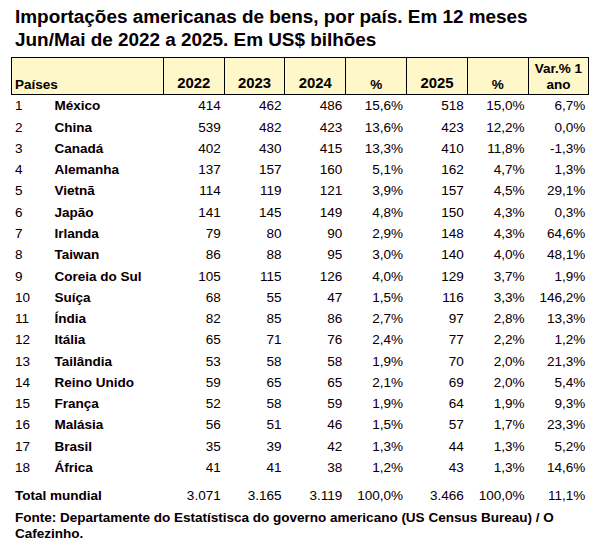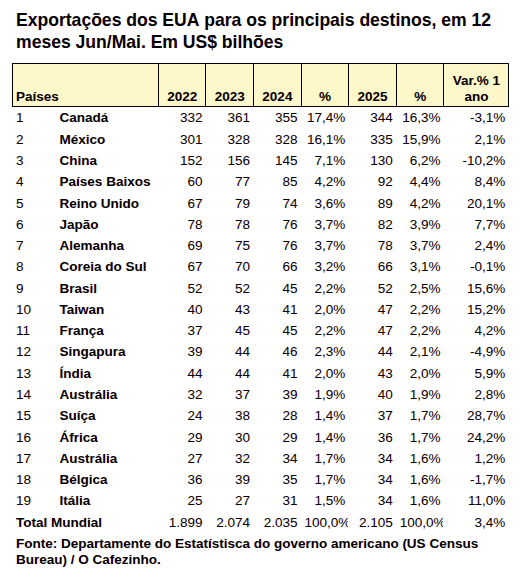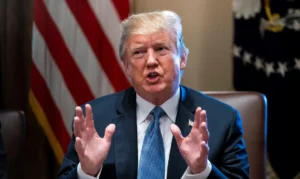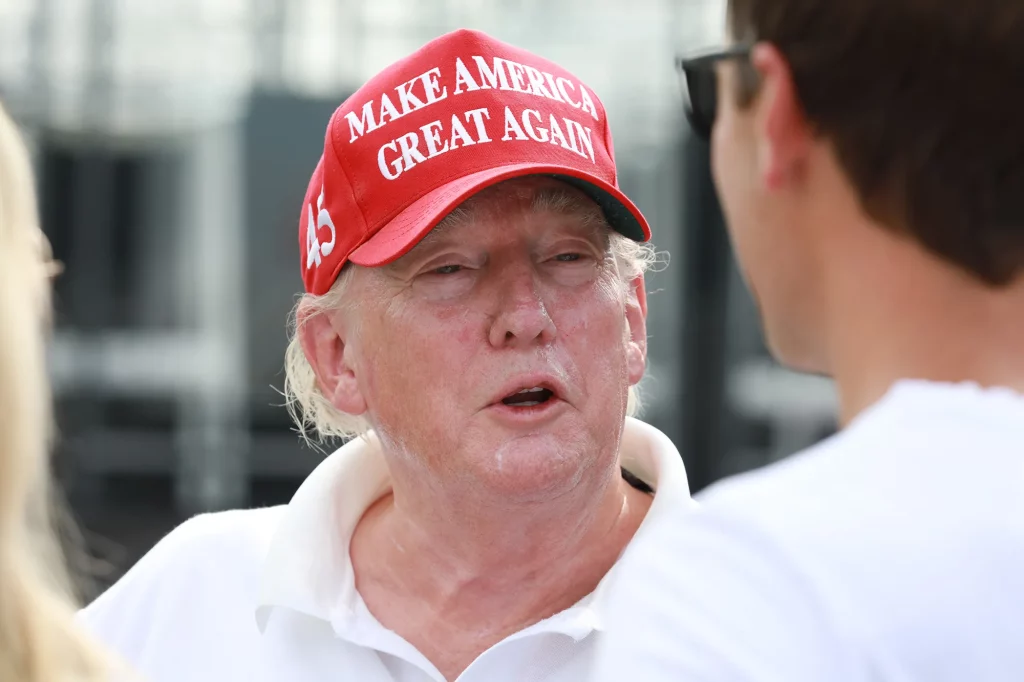
Analyses were swift and almost unanimous. Across the moderate right and the left, virtually everyone understood that Donald Trump’s grotesque assaults against Brazil ignited a powerful wave of patriotic sentiment, in defense of the Lula government and deep irritation with the Bolsonaro family.1
So much so that several Bolsonaro supporters began shouting on social media: “It’s Lula’s fault, it’s Lula’s fault.” But this attempt merely reflected their desperation.
Another example: journalist Paulo Figueiredo, grandson of dictator João Figueiredo, residing in the United States, has been one of the main articulators, along with Congressman Eduardo Bolsonaro, of the strategy to pit Trump against the Lula government and against Brazil. When he realized, however, the growing negative reactions to Trump’s decision, and that this could backfire on Bolsonarism itself, Figueiredo tried to change his narrative: “Oh no, the focus isn’t Lula, it’s Moraes’s fault.”
Some figures linked to Bolsonarism, like São Paulo Governor Tarcísio de Freitas, couldn’t distance themselves from Bolsonaro and decided to align with the American president, Donald Trump, against their own government and their own country. The result: they were torn apart on social media.
A curious fact is that Trump himself faced problems on social media, with thousands of Brazilians invading his accounts to criticize him and defend Brazilian sovereignty.
The Lies in Trump’s Letter
But what exactly motivated such a strong reaction from Brazilian society? The answer lies in the letter itself sent by Donald Trump to President Lula – a document that appears to be written by someone intellectually incapable. The text is full of contradictions and explicit lies.
The first and most blatant lie is Trump’s complaint about an alleged trade deficit the United States has with Brazil. The American president textually states that “Brazil has benefited from unfair trade practices” and complains about an alleged “significant trade deficit” of the U.S. with Brazil. This simply does not exist.
Trump also writes in the letter that “Brazil needs to treat the United States more fairly in trade,” completely ignoring that Brazil historically buys more American products than it sells. The letter also contains grotesque interferences in Brazilian internal affairs, with Trump demanding explanations about judicial processes that are completely outside the purview of the Lula government.
The Real Numbers: An American Surplus of US$ 125 Billion Over 15 Years
To understand the magnitude of Trump’s lie, one needs to look at the historical data of the trade relationship between the two countries. Since 1998, Brazil has had a trade deficit with the United States in 18 out of the 28 years analyzed.
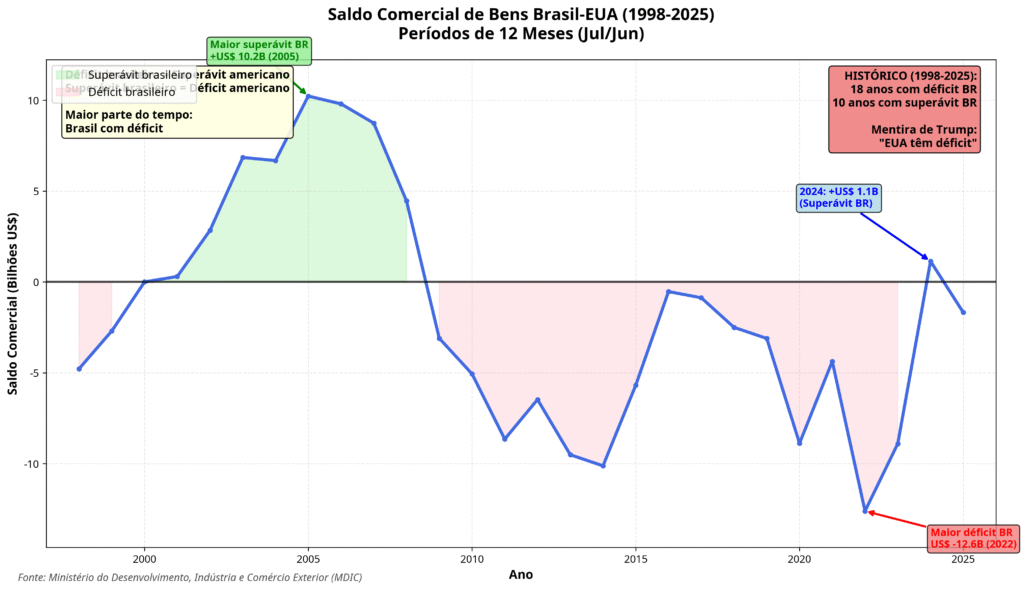
The largest Brazilian deficit in goods (or products) occurred in 2022, with US$ 12.6 billion, while the largest surplus was registered in 2005, with US$ 10.2 billion. In 2024, Brazil had a small surplus of US$ 1.1 billion, but in 2025, it already returned to a deficit of US$ 1.7 billion. Over the last 15 years, Brazil accumulated a goods trade deficit of US$ 84 billion with the United States.
When we consider the service sector, the situation becomes even clearer in favor of the U.S. Between 2010 and 2024, according to data from the Central Bank of Brazil, the total trade in goods and services between Brazil and the United States moved US$ 1.24 trillion – equivalent to 4.28% of the American GDP in 2024. To put the magnitude of this value into perspective, the U.S. military budget in 2024 was US$ 841.4 billion.
In the service sector alone, the United States accumulated a surplus of US$ 40.5 billion with Brazil between 2010 and 2024. In 2024, the American surplus in services was US$ 8.9 billion.
Over this 15-year period, Brazil exported US$ 562 billion in goods and services and imported US$ 687 billion, resulting in an accumulated American surplus of US$ 125 billion! This means that the U.S. has a lot to lose if they genuinely decide to enter a trade war against Brazil.
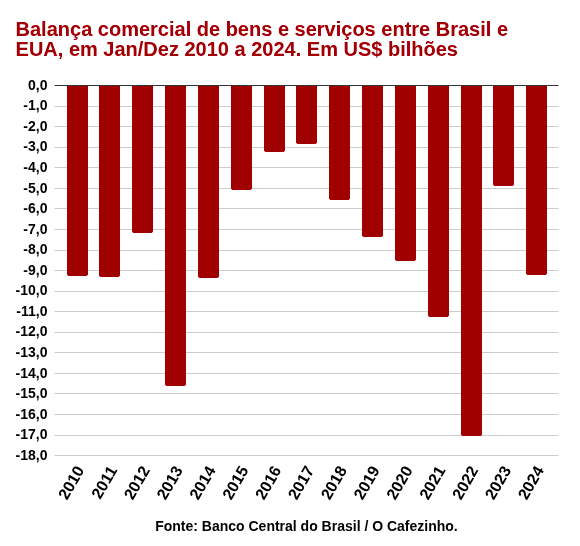
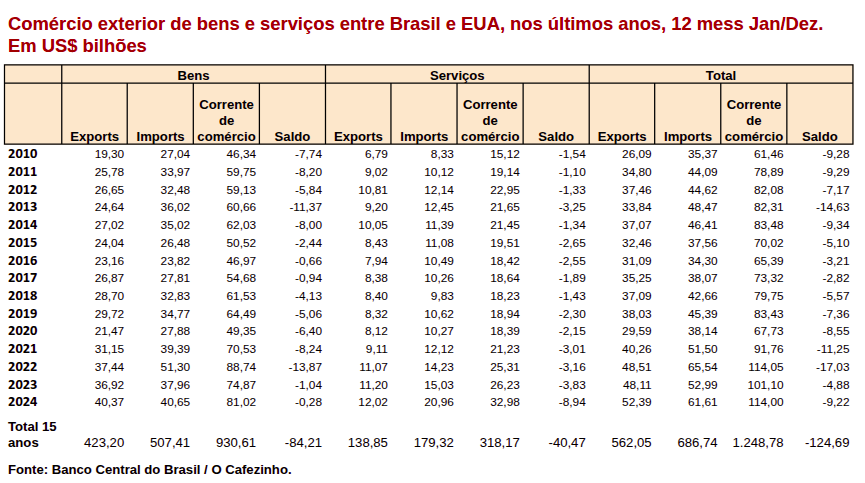
Brazilian Coffee: 23% of American Imports
Coffee represents one of the most strategic sectors in the Brazil-United States trade relationship. Over the last 12 months (July 2024 to June 2025), according to data from the Ministry of Development, Brazil exported US$ 2.6 billion in coffee to the United States.
The U.S. bought 16% of all Brazilian coffee exported in the last 12 months, up to June.
On the North American side, according to data from their government’s Department of Statistics (12 months up to May 2025), Brazilian coffee represents 23.3% of all coffee imports, consolidating Brazil as the main supplier.
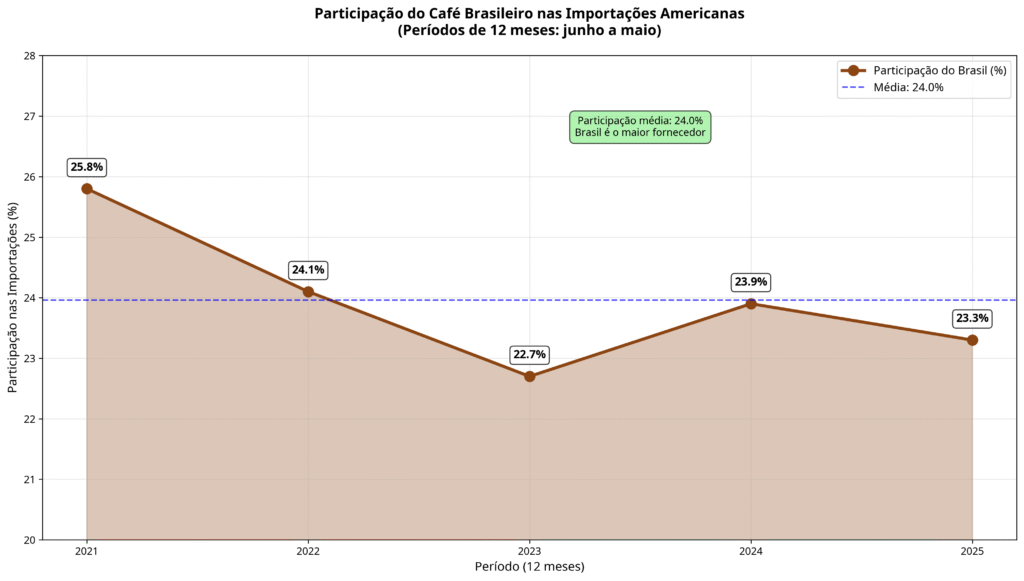
The coffee market in the United States moves US$ 343.2 billion. As the United States produces less than 1% of all domestically consumed coffee, the country is fundamentally dependent on imports.2 The main suppliers are Brazil, Colombia, Vietnam, and Guatemala. No country is in a position to increase its supply to replace Brazilian coffee.
Iron Ore: Brazil Dominates with 62% of Imports
Iron ore represents another crucial sector.3 Over the last 12 months (up to May 2025), according to data from the U.S. government’s Department of Statistics, Brazil maintained an average share of 62.4% of United States iron ore imports.
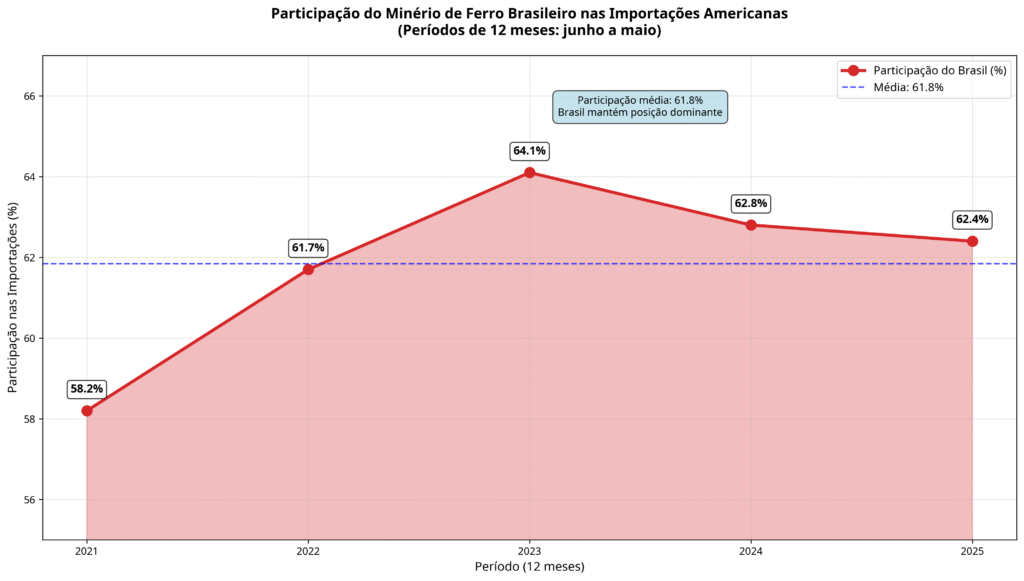
On the Brazilian side, 48% of iron and steel exports were destined for the United States in 2024, making them the main buyer of these Brazilian products. This relationship is not coincidental: the United States and Europe have exploited their deposits so much that today they have almost no significant iron ore reserves left. Brazil possesses some of the largest reserves in the world, with Carajás holding 190 billion tons.
Brazilian Meat: 21.7% of American Imports
Brazil is a strategic supplier of frozen beef to the United States.4 Over the last 12 months (June 2024 to May 2025), Brazil accounted for 21.7% of all American frozen beef imports, totaling US$ 1.3 billion out of a total market of US$ 6.1 billion.
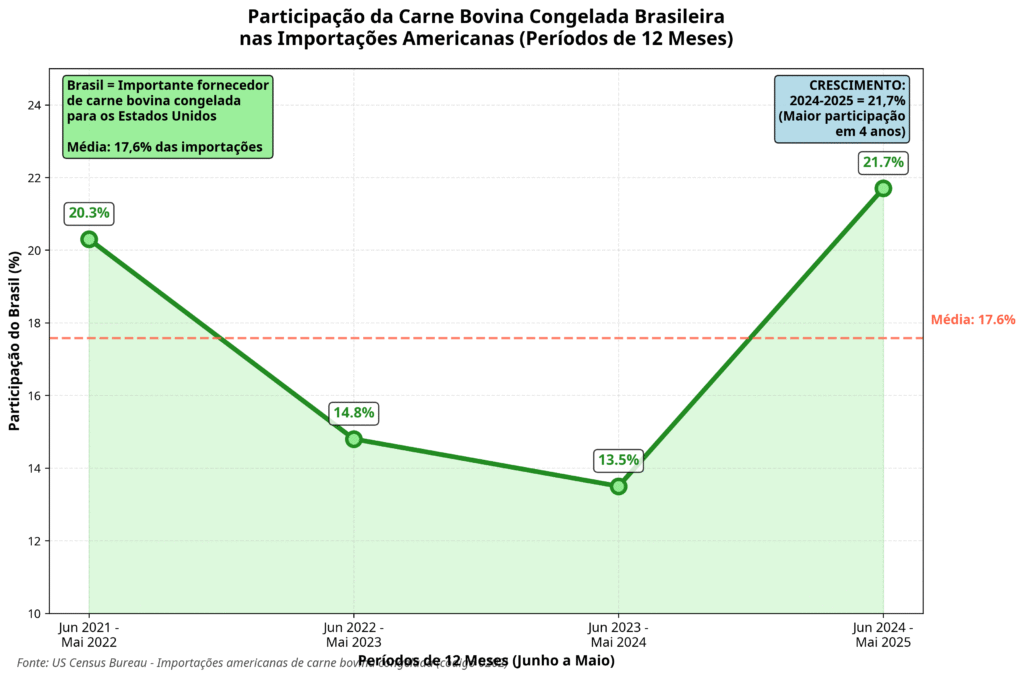
Brazil’s share of American frozen beef imports averaged 17.6% between 2021 and 2025. The most recent period (June 2024 to May 2025) recorded the highest share in four years, demonstrating Brazil’s growing importance as a supplier.
This sector supports thousands of jobs in both Brazil and the United States. On the Brazilian side, it involves slaughterhouses, rural producers, transporters, and ports. On the American side, it generates jobs in meat import, distribution, processing, and retail.
Jobs and Strategic Market
Brazil accounts for 2.6% of all American exports globally, according to U.S. government data. This participation directly supports 130,000 jobs in the United States, according to official data from the U.S. Department of State.
Brazilian products generate millions of jobs in the United States. In the coffee sector alone, 2.2 million American workers directly depend on the production chain. In the steel sector, thousands of jobs in mills, ports, and transportation depend on Brazilian iron ore.
On the Brazilian side, according to a study by Amcham Brasil (American Chamber of Commerce), companies that trade with the U.S. directly employ over 500,000 Brazilians and indirectly another 1.5 million workers. In agribusiness, the United States primarily exports wheat, corn, processed soybeans, and beef to Brazil. In energy, diesel oil, gasoline, and liquefied natural gas stand out.
Brazil as a Strategic Market for American Products
While Trump criticizes Brazil, data reveals that the country is a fundamental market for various American products.5 Far from being a “parasite,” Brazil is one of the world’s leading buyers of American products in several strategic sectors.
The highest value product in American exports to Brazil is civil aircraft, engines, and parts, totaling US$ 10.5 billion over the last 12 months, up to last May, according to the U.S. government’s Department of Statistics (US Census Bureau). Brazil accounts for 7.8% of all American exports in this sector.
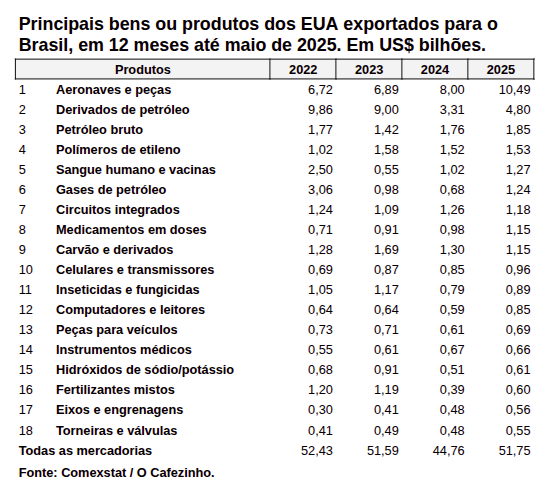
In chemical and industrial products, Brazil stands out as one of the U.S.’s most strategic customers. The country represents 41.1% of all American sodium hydroxide exports (a global market of US$ 1.48 billion, with US$ 608 million destined for Brazil). This product is essential for the chemical, pulp and paper, and water treatment industries. The data used here always refer to the accumulated 12 months, up to last May.
Brazil’s Share in American Exports by Product:
- Sodium Hydroxide: 41.1% (US$ 608 million)
- Sulfur: 33.6% (US$ 87 million)
- Potash Fertilizers: 28.0% (US$ 343 million)
- Miscellaneous Fertilizers: 22.9% (US$ 605 million)
- Insecticides/Fungicides: 19.4% (US$ 893 million)
- Coal: 9.5% (US$ 1.15 billion)
- Ethylene Polymers: 9.2% (US$ 1.53 billion)
- Civil Aircraft: 7.8% (US$ 10.5 billion)
- Petroleum Oils/Diesel: 4.2% (US$ 4.8 billion)
Source: US Census Bureau.
In the fertilizer sector, Brazil is equally strategic. It represents 33.6% of American sulfur exports (US$ 87 million out of a total of US$ 258 million), 28% of potash fertilizers (US$ 343 million out of US$ 1.22 billion), and 22.9% of miscellaneous fertilizers (US$ 605 million out of US$ 2.64 billion).
In the energy sector, Brazil imports US$ 4.8 billion in petroleum oils and diesel, representing 4.2% of American exports in this sector (US$ 113.4 billion globally). It also imports US$ 1.8 billion in crude oil, equivalent to 1.7% of American exports (US$ 109.9 billion globally).
In the top five products alone (aircraft, petroleum oils, crude oil, polymers, and medicines), Brazil moves over US$ 20 billion annually in imports from the United States.
Eduardo Bolsonaro and the Complete Absence of Patriotism
These offensives did not happen in a vacuum. They came immediately after the BRICS meeting, where Brazil actively participated in the commercial diversification strategy. Trump has been attacking the BRICS for days, even threatening 10% tariffs on all member countries.6
What is most shocking is seeing the Brazilian far-right not only accept Trump’s explicit lies in his letter but celebrate them. Eduardo Bolsonaro even publicly thanked Trump for the decision to impose 50% tariffs on Brazil, demonstrating unprecedented anti-patriotism. Instead of defending the country against offensives based on lies, Eduardo chose to align himself with those who attack Brazil.
The irony is cruel: Eduardo is being maintained in the United States with money from his father, which in turn comes from donations from productive sectors that will be the first to be harmed by these tariffs.
Resistance and National Sovereignty
Fortunately, the Brazil of today is not the Brazil of old. We have a diversified trade flow with other countries. The United States, though important, does not represent an existential dependence. Thanks to the work of the Lula government and BRICS, we can diversify markets if the North Americans don’t want to do business with us.
There’s still a cruel irony in this whole story. The American importers pay these tariffs, not Brazil. Bolsonaro supporters try to label the Lula government as a “taxer,” but the one dramatically taxing his own businesses is precisely President Donald Trump.
